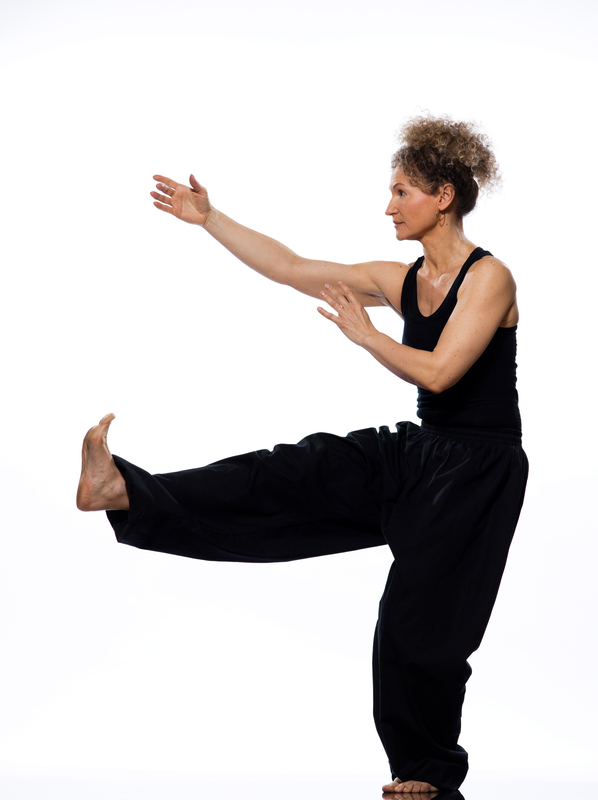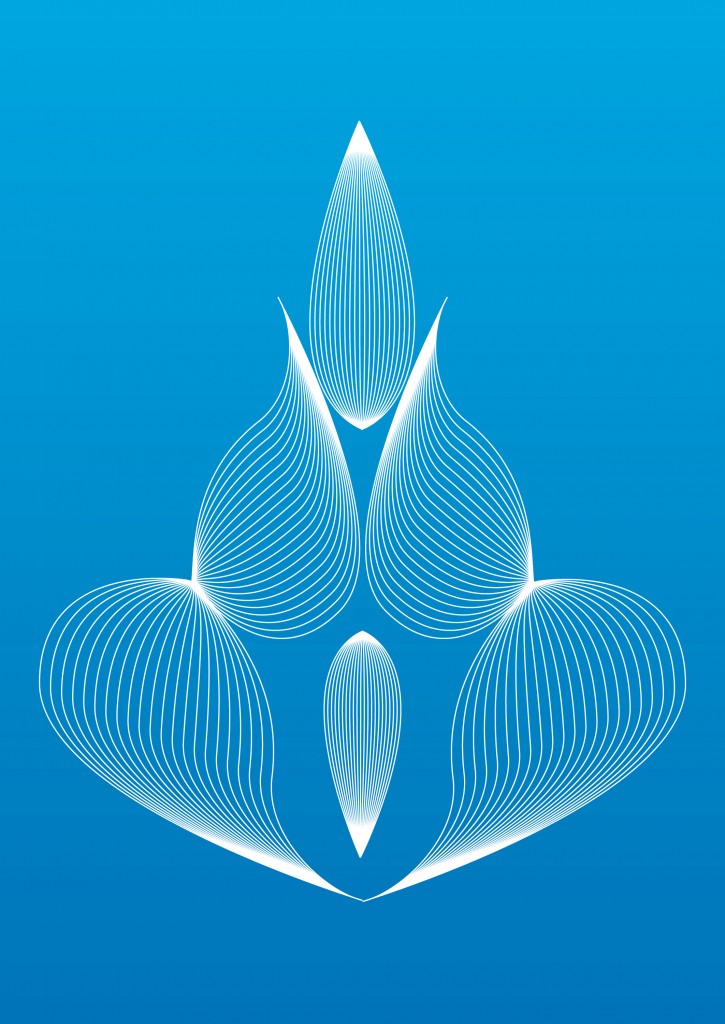Wednesday Bubble: No mystique, just perseverance
 Time for another menopause downer…followed by some good news! First the downer: declining levels of estrogen during menopause tend to reinforce a decline in the body’s ability to naturally metabolize blood fats and its ability to fight off the ravages of oxygen-free radicals, you know, free roaming oxygen ions that can wreak havoc on the immune system. The result is often an upsurge in heart and other metabolic diseases. You can read more about those conditions here.
Time for another menopause downer…followed by some good news! First the downer: declining levels of estrogen during menopause tend to reinforce a decline in the body’s ability to naturally metabolize blood fats and its ability to fight off the ravages of oxygen-free radicals, you know, free roaming oxygen ions that can wreak havoc on the immune system. The result is often an upsurge in heart and other metabolic diseases. You can read more about those conditions here.
Okay, so the good news: it appears that Tai Chi training may help increase the body’s antioxidant defenses in both pre- and post-menopausal women! In fact, in a study published a few years ago in the Journal of Aging Research, investigators noted a marked change in antioxidant markers normally related to aerobic exercise, as well as a decline in a marker for heart disease risk.
For those of you unfamiliar with Tai Chi, it is an ancient Chinese martial art form that combines breathing with smooth, gentle postures. It may look fairly tame, however, having studied Tai Chi for a short period of time, I can assure you that it’s damn hard. Moreover, despite appearances, it is a weight-bearing exercise that not only strengthens muscles but also is on par with moderate intensity aerobic exercise. It has also been shown to improve mobility, flexibility and balance, improve sleep and overall wellbeing, and even enhance the circulation of blood through the smallest of blood vessels.
I’ve written about the effect of breathing on stress and the body’s stress markers. However, it appears that when Tai Chi is combined with slow and deep breathing exercise (i.e. 6 breaths per minutes) overall benefits are boosted. Indeed, two, 75-minute Tai Chi sessions a week combined with two hours of at home practice appeared to do just what the doctor ordered. These sessions involved 10 min of warm up/stretching, 60 minutes of Tai Chi (45 minutes 18-posture Tai Chi and 15 min Tai Chi Fan Style) and an initial check in period. In addition to the slow, rotational, fluid movements (1.5 minutes per motion), the women participating in the study were taught to control their breathing. Over the eight weeks, they also underwent blood and had physical fitness evaluations.
The findings? Tai Chi training improved balance, flexibility and leg extension strength in all of the women regardless of menopausal status. LDL cholesterol was also lowered. And, as mentioned, markers for antioxidant activity increased significantly while a marker for heart disease risk decreased.
Tai Chi is low impact and is especially valuable for women who may not be physically able to boost their aerobic routines. What’s more, once mastered, it can be practiced in the privacy of one’s own home. Once again, the mind-body connection proves to be pretty darn cool and important to health and wellness! This time, it might take some practice but perseverance rules the day! “There is no mystique to Tai Chi Chuan. What is difficult is the perseverance. It took me ten years to discover my chi, but thirty years to learn how to use it. Once you see the benefit, you won’t want to stop.” – Ma Yueh Liang
Read MoreAlternative medicine and the ‘pause: what your gynecologist is thinking
Women rank among the highest consumers of complementary and alternative medicine for their healthcare, and according to the National Center for Complementary and Alternative Medicine, age matters. In fact, the largest percentage of adults reporting that they use alternative medicine strategies are 50 to 59 years old, and as many as 42% discuss their use with their doctors. However, what does your gynecologist think about complementary and alternative medicine use? Is she or he supportive and what modalities tend to rank highest in terms of recommendations or endorsements? Moreover, how do gynecologists differ in their opinions?
In the U.S., most ob/gyns appear to believe that convention medicine practices for reproductive issues might benefit by the integration of complementary strategies. However, most of the positive beliefs focus on biofeedback, chiropractic, acupuncture or meditation. Conversely, the doctors report that they would not recommend dietary changes or Traditional Chinese Medicine and a majority were not strong supporters of herbal medicine. This is in direct conflict with German gynecologists. But why should we care about the Germans and what they think!!!?
To digress, I don’t know how many of you are familiar with the Commission E Monographs but, they comprise the world’s leading scientific summaries on the use of medicinal herbs in health and disease. In the late 1970s, the German Ministry of Health established Commission E, a panel of experts charged with evaluating the safety and efficacy of the herbs available in pharmacies for general use. In all, the group published 380 herbal monographs that are considered “the most accurate information available in the entire world on the safety and efficacy of herbs and phytomedicines.” Hence, the Germans definitely have a leg up when it comes to alternative medicine, at least when it comes to the use of herbal alternatives.
So, let’s take a look at a similar survey experience newly published in Complementary Therapies in Medicine, in which over 2,500 respondents indicated a familiarity with the use of alternative medicine specifically for menopausal symptoms. Almost all of the gynecologists had some experience with black cohosh, chaste tree berry and St. John’s Wort and believed them to be effective. And the modality that they felt was most effective? Lifestyle changes and alteration (think: change in dietary habits, physical activity, reduction of stress, etc). The least effective strategies, at least in the eyes of German doctors, were yoga, acupuncture and homeopathy.
The researchers point out that the viewpoint of German doctors is important because these practitioners play an important and consistent role counseling women who complain of menopausal symptoms. The same is true for their U.S. counterparts. And yet, despite the wealth of data in the Commission E monographs, many doctors still continue to question effectiveness and scientific evidence supporting the use of alternatives.
Will this make a difference with regard to the choices that women are making? Probably not, because as I’ve been writing for years, one size does not fit all, especially when it comes to weighing the benefits versus the risks of hormone replacement.
The next time you have your annual with your gynecologist, find out what she or he thinks of complementary and alternative and strategies and most of all, ask why. What she or he is thinking might not be aligned with what you find works best for you.
Read More
Feeling lonely? Meditate!
I spent this past weekend in NYC, the place that I once called home and in my heart of hearts, still do. But as I sat at lunch yesterday and watched people stroll by, I realized that many of them were alone. And I remembered that despite the millions of people in NY, I often felt very much alone there. I don’t feel that way very often any longer and yet, I imagine that it’s not simply a geographically-driven emotion but rather, life changes have a lot to do with loneliness. Indeed, by the time that midlife hits full on, many adults find themselves going through a divorce, losing loved ones to illness and watching their children leave the house for college or to start their lives and careers. Sound familiar? Well, then you might also find the link of these events to loneliness and in turn, to an increased risk of heart disease, depression and even premature death, important.
While the underlying reasons for these associations are complicated, suffice it to say, research suggests that stress can trigger inflammation that has been shown to increase the risk for chronic illness and death. Fortunately, for the first time, there may be a solution: meditation.
Researchers from UCLA say that study findings show that incorporating 30 minutes of daily meditation practice may help to alter the way our genes bolster inflammatory processes in the body by altering feelings of loneliness. Indeed, when people between the ages of 55 and 85 were trained in mindfulness meditation practice, they did more than find inner peace. Here’s the skinny:
Half of the participants participated in a trainer-led, two-hour mindfulness sessions in which they were guided through mindfulness meditation exercises, mindful yoga and stretching, and group discussions that were intended to help promote mindful awareness of the present moment, and moment to moment experience; these sessions were held weekly for eight weeks. They also participated in a day-long retreat towards the end of the study where their practice were more closely integrated and discussed. Additionally, these men and women practiced at least 30 minutes of mindfulness sessions for six days a week during the program.
Mind you, the study was very small and included only 40 participants. However, learning how to live in the present appeared significantly reduce feelings of loneliness and alter both genes and protein markers of inflammatory by as much as 25%, including the signal that activates the inflammatory processes in the body. The researchers say that also observed a decline in C-reactive protein, which has been linked to heart disease.
Loneliness..scientifically, it’s been described as “a state of social distress that arises when there is a discrepancy between one’s desired and actual social relationships.”
I like this description better, from the great Buddhist nun and teacher, Pema Chodron:
Loneliness is “restless and pregnant and hot with the desire to escape and find something or someone to keep us company. When we can rest in the middle [through meditation practice], we begin to have a nonthreatening relationship with loneliness, a relaxing and cooling loneliness that completely turns our fearful patterns upside down.”
Mindfulness meditation. It may alleviate more than heartache and benefit in ways that we have yet to imagine.
Read More
Sleep and mindfulness
Up to 63% of women are affected with sleep issues, in particular insomnia, during and after menopause. It’s no wonder that I can’t stop writing about sleep. And, while there are numerous hypotheses as to why insomnia, i.e. difficulty falling asleep or staying asleep more than three times a week (or, not having refreshing sleep just as frequently) affects women during the ‘pause more than at other times in their lives, relief appears to be more than a few zzz’s away.
Can mindfulness-based interventions help?
Research suggests that by focusing on our mental and physical state of mind when experiencing insomnia, we can then learn how to shift mental processes to achieve a better balance. This is exactly what meditation does; increasing attentiveness and focus has been shown to alleviate stress and promote wellbeing.
When researchers compared the degree of attentiveness, alertness, determination and concentration between women with and without insomnia, they found that that women with insomnia appeared to report having less mindfulness, were less attentive when performing tasks or eating. Moreover, the degree of mindfulness or lack thereof did not appear to be affected by mood or by menopausal symptoms, factors that could also affect sleep.
Ultimately, the path towards better sleep may be paved with the ability to improve mindfulness, to actively engage and gain control over cognitive resources that we aren’t even aware we are using. At its most basic level, it simply means that meditation may help make to improve awareness over our perceptions so that we can increase our ability to respond to events with a broad range of options, instead of giving in to the storm of thoughts and emotions.
Increasingly, I am finding myself drawn towards a meditation practice. Do you meditate? What types of benefits have you noticed?
Read MoreShe who laughs…
lasts.
I imagine that the link between laughter and health is no surprise. After all, that deep in your belly, can’t stop it hurts, tears rolling down your face laughter may actually go a lot further than a moment of sheer bliss.
This past weekend, I spent time with friends and family members with whom I can share a good laugh. I can’t tell you how healing and inspiring that was, so much so that I wanted to resurrect and share a post I wrote a few years back…
Several years ago, researchers discovered that humor therapy and anticipation of laughing or being amused (also known as mirthful laughter) positively affects immunity. In fact, findings from a series of five separate studies among healthy men demonstrated that just anticipating watching a funny video could increase beta-endorphins (hormones that elevated mood) as much as 17% and human growth hormone (which contributes to more optimal immunity) by as much as 87%. Elevated hormones levels were maintained throughout the video and as long as 12 hours after. Conversely, hormone levels did not increase in men who who did not anticipate watching a humorous video and instead, browsed magazines.
Similar results were seen in another study among healthy adult women; this time mirthful laughter was associated with significant declines in stress hormones and improvements in natural killer cells, which contribute favourably to immune function.
More recently, researchers have been examining the effects of mirthful laughter on actual disease states. Findings of a year-long study presented at the Experimental Biology Conference in 2009 suggest that watching a funny, 30-minute video on a daily basis may impart a long lasting impact on health that includes:
- Lower stress hormones (epinephrine and norepinephrine) and related stress levels
- Lower levels of inflammation that can contribute to disease
- Significant improvements in HDL cholesterol
- Significant reductions in harmful C-reactive protein levels (a protein that increase the risk for heart disease, heart attack, stroke and death)
This particular study evaluated laughter in patients with diabetes, high blood pressure and high cholesterol who were also taking medication. Notably, similar positive outcomes were not seen in patients who did not have the benefit of watching the funny video.
Simulation laughter also appears to work wonders.
In case you are wondering what I’m referring to, simulated laughter is the foundation of laughter yoga, a worldwide movement that focuses on laughter exercises, including:
- Pantomime followed by laughter
- Physical greetings followed by laughter
- Dancing and singing (and laughing exercises)
- Laughing alone
- Laughing meditations
Simulated laughter works in large groups, in pairs and can be playful or exaggerated. The theory underlying simulated laughter is that while the mind can distinguish between spontaneous and simulated laughter, the body cannot. Importantly, research bears this out, and a number of scientifically controlled studies have shown that simulated laughter can lead to reductions in blood pressure, improvements in stress hormone levels, positively affect depression and insomnia and even improve anxiety in chronic pain patients. Regular simulated laughter sessions can be used as effective coping strategies and benefit workplace morale. Even smiling can yield positive effect.
Can anyone do it? Well, clearly, anyone can laugh. But simulated laughter is a technique that is most effective when it’s learned, practiced and developed. Not surprisingly, laughter yoga clubs have popped up across the nation, touting messages of helping people gain a happiness advantage. And data provide sufficient evidence that ‘laughter has positive, quantifiable physiological and psychological effects on certain aspects of health.”
What can we take away from this work and what does it have to do with menopause? Actually, I’d like to ask, what doesn’t it have to do with menopause and midlife?
During the transition, women are subject to hormonal stressors that affect mood, functioning, wellbeing as well as disease risk. If there are simpler, more natural ways to improve healthy states, for example, by daily laughter, shouldn’t we reach for them? I’d rather take a dose of funny over pharma any given day.
Here’s my gift to you: laugh today. And tomorrow. And the next day. And spread the joy. Nothing like a deep belly laugh to take some of life’s challenges away.
Read More










